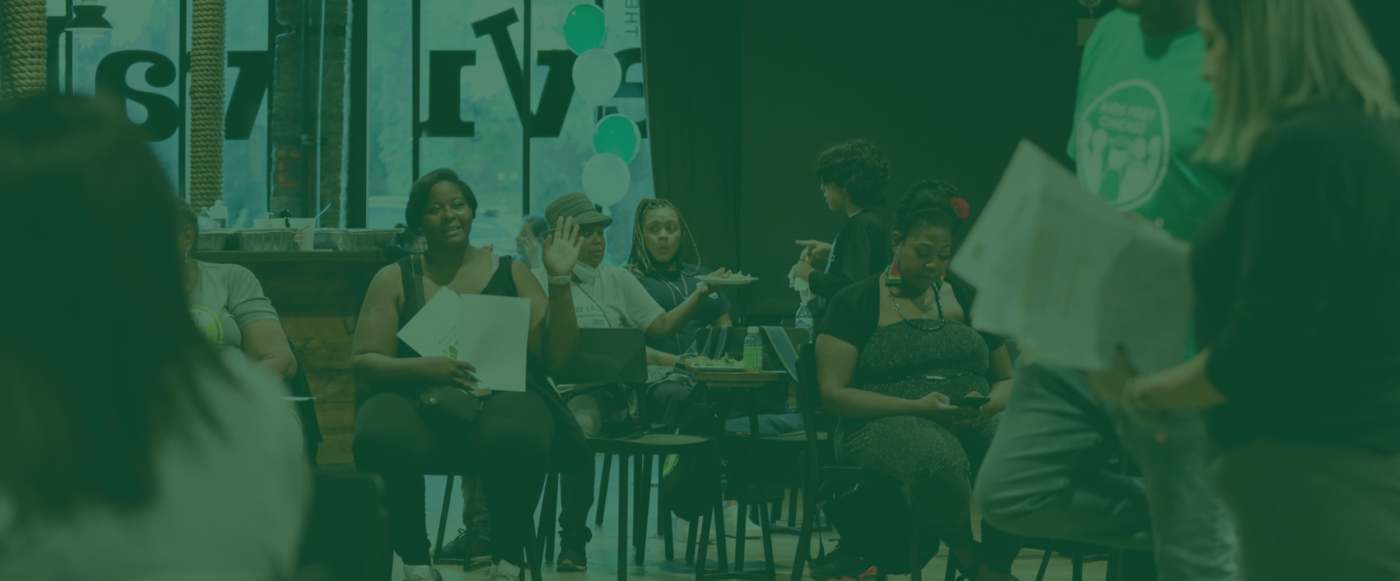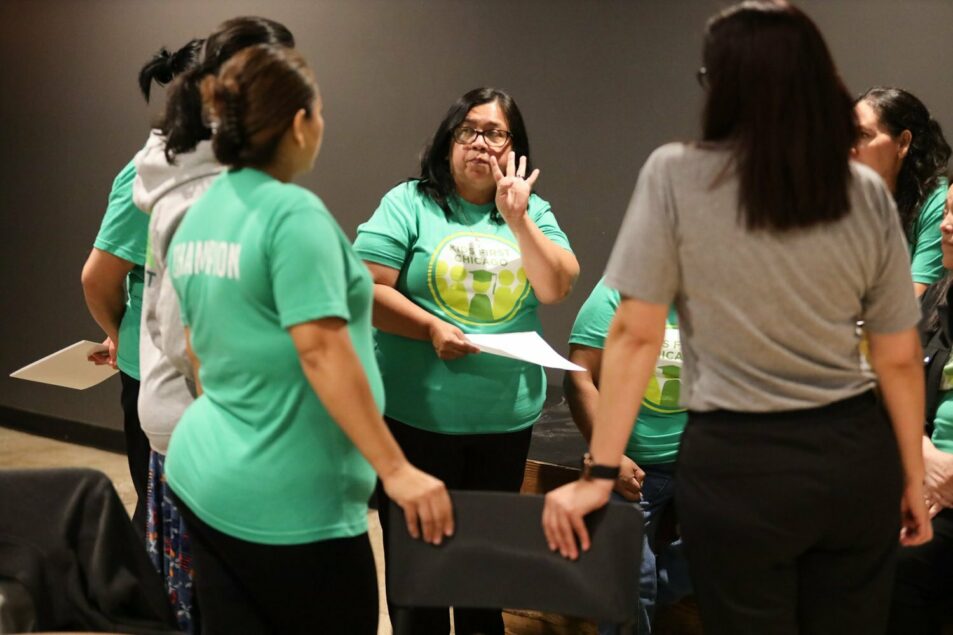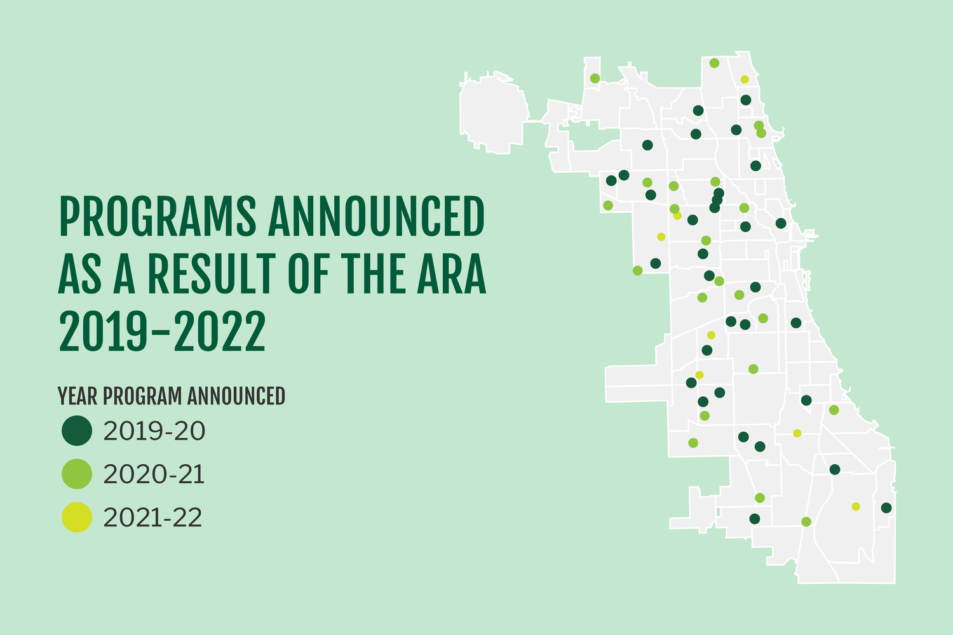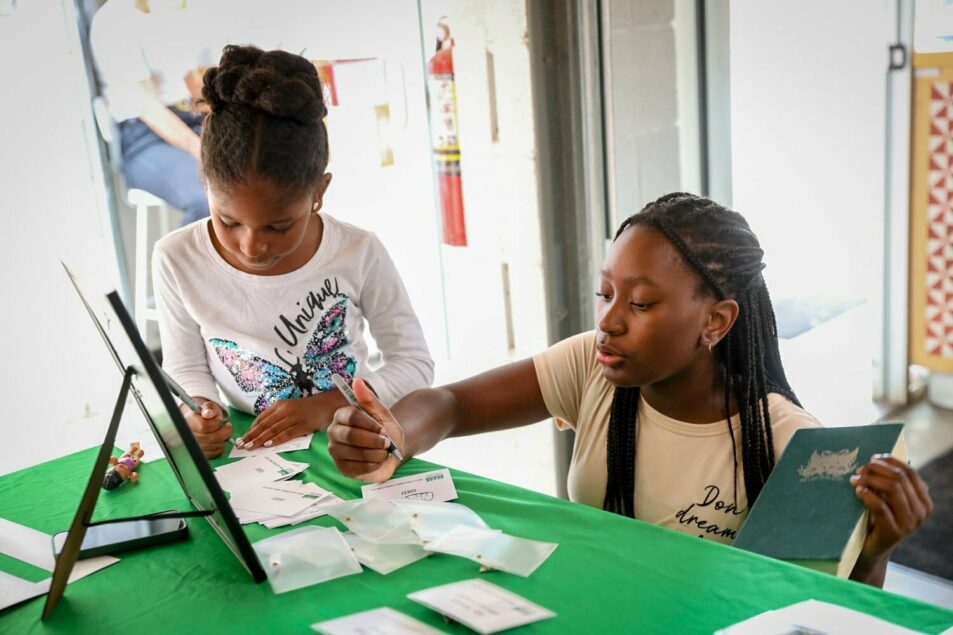$57,500,000
In Programmatic Investments Driven by the Annual Regional Analysis
33K
Students Directly Impacted by Programmatic Investments from the Annual Regional Analysis
100,000+
CPS Students in 60,000+ Households with No-Cost High-Speed Internet
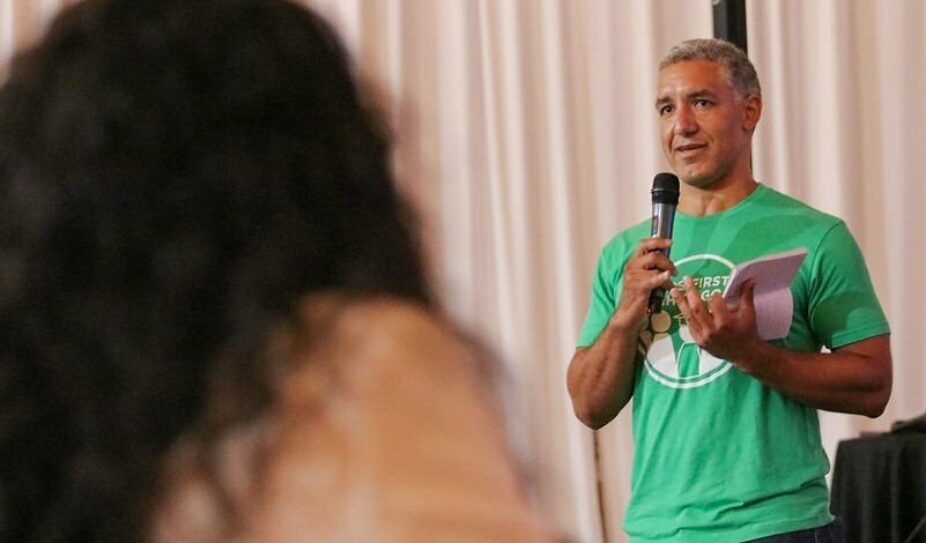
Fall/Winter 2022
Dear Friends & Partners,
These last two and a half years have altered our lives in ways big and small. They’ve changed how we live, learn, and collaborate with one another. Despite the enormous and continued challenges wrought by the coronavirus, we have witnessed so much good coming from Chicagoans who believe fiercely in our communities, our students, and our potential as a city.
We’ve seen the authenticity and power of parents in action. From spearheading Chicago’s groundbreaking digital equity program, Chicago Connected, to leading CPS’s most inclusive accountability policy redesign initiative to date, to organizing local education improvement efforts in communities across the city, parents are the experts on what their kids need to succeed.
At Kids First Chicago, we’ve only begun building platforms for parents to lead. You can count on hearing from us – and the parents in our network directly – in the future about where we’re heading.
In the meantime, we are pleased to share our latest impact report, reflecting on the past two years and what we’ve accomplished.
On behalf of our team, we thank the many individuals, investors, thought partners, and friends who have been with us on our journey at Kids First Chicago.
Sincerely,
Daniel Anello
CEO, Kids First Chicago, and the Kids First Chicago Team
David Casper
U.S. CEO, BMO Financial Group, and Board Chair, Kids First Chicago
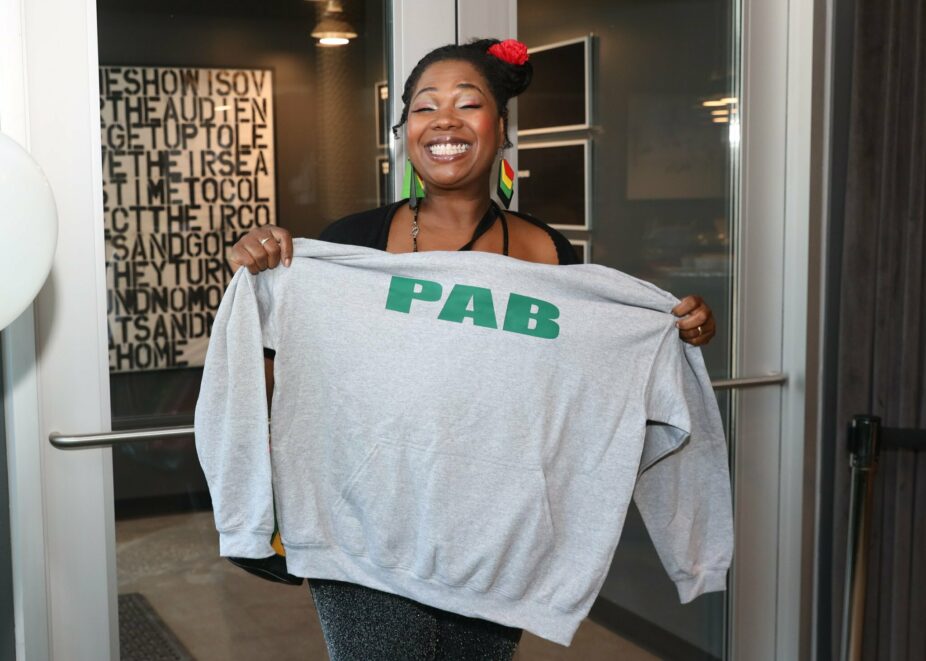

“...We no longer have to ‘accept’ things. We can actually do something to improve it. No matter how small it might seem... Participating in this fellowship would not only give you knowledge, avenues and the push one sometimes needs, but it will also give you the resources and support required to be successful.”
—Brenda Rivera, PLF Alum, Humboldt Park
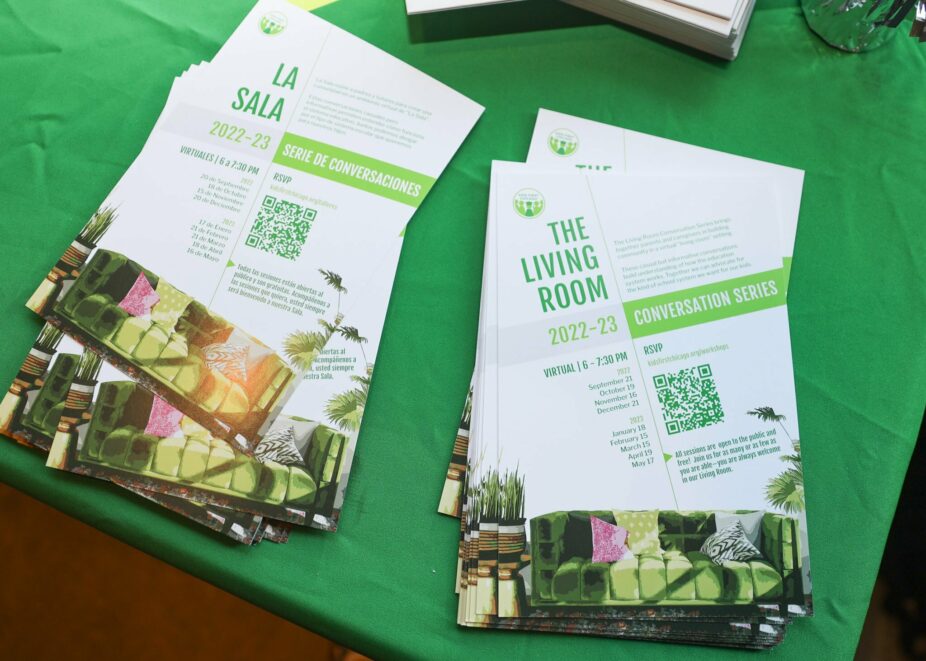
Section 2
Inclusive Policy & System Design
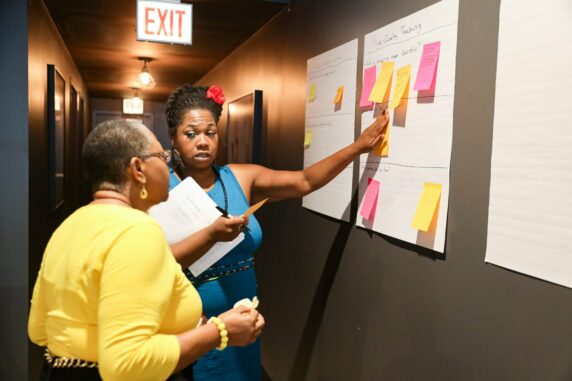
Co-Designing an Equitable way to Measure School Performance
Like most large urban districts, Chicago Public Schools (CPS) struggles to build understanding and trust with its stakeholders around critical yet complex policy change. Over the last year and a half, K1C has worked in partnership with CPS to build a new, radically inclusive, process of stakeholder engagement around Accountability Redesign – the district’s effort to develop a new more equitable school performance measurement system.
Defining what makes a school high-quality, and consistently providing data around performance, is key to parent, teacher, administrator, and district leadership’s understanding of whether our schools are serving students.
Through Accountability Redesign, K1C has helped CPS reach more than 12,000 stakeholders. This engagement effort has far surpassed previous policy initiatives – both in terms of the depth of engagement and the sheer number of stakeholders participating.
CPS regularly touts the project as an exemplar in terms of engaging stakeholders on a policy that directly impacts the entire district.
12,000
90+
Direct Engagement Sessions Including Town Halls, Focus Groups, and Information Sessions
"The city-wide survey on accountability redesign is only the latest in a long string of hugely significant contributions K1C has made to the accountability redesign process. The way K1C rallied stakeholders to design, administer and interpret the survey was incredibly effective and will have a major impact on the district’s policymaking process. K1C is helping the district rewrite the playbook on policy making, and we are grateful.”
— Jeff Broom Director of School Quality Measurement & Research Chicago Public Schools

Creating a community that transcends neighborhood boundaries is at the heart of what the parent leadership fellowship is about and what we believe is core to building a stronger Chicago.
—Nayda De La Rosa, Sr. Community Engagement Manager, Kids First Chicago
Section 3
Steward the Facts
Chicago's Enrollment Crisis, Part 1
In January 2022, K1C released the first report of a multi-part series on Chicago’s Enrollment Crisis. In Part 1: Exploring Root Causes, K1C examined the root causes of the consistent enrollment decline in CPS over the last 20 years. In 2000, CPS enrollment stood at more than 430,000 students. Today, just slightly more than 320,000 students attend CPS — and there is a consistent decline of as many as 10,000 public school students each year. It was recently announced that after decades as the third largest school district in the nation, CPS has officially slipped to the fourth largest.
The report identified three key drivers of the decline:
- declining birth rates,
- slowing immigration of Latinx/a/o families, and
- increasing out-migration of Black families.
Because district funding is based on how many students a school district serves–and in turn, how many students an individual school serves–lower enrollment means less funding while some costs, like maintaining buildings, remain fixed. An under-enrolled environment often translates into less electives and programs for students, less professional development and planning time for teachers, and fewer school-wide supports like social workers, counselors, and technology coordinators.
In the months ahead, K1C will share parent-led solutions to this multilayered challenge – solutions that will keep more families in Chicago and attract new ones.
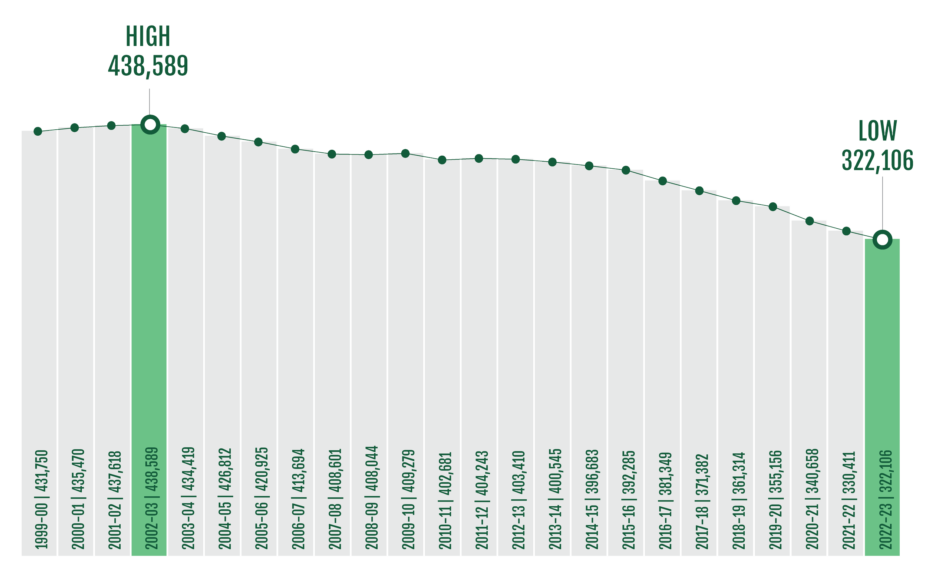
Bridging the Digital Divide in the Coronavirus Era
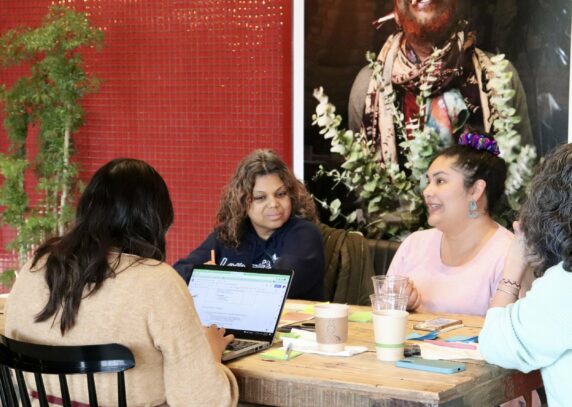
"The connectivity gap in school-aged children was nearly halved"
Chicago Connected is the groundbreaking, multi-year program to close Chicago’s PK-12 digital divide. K1C spearheaded the launch of Chicago Connected in late June 2020 and since then it has connected more than 100,000 CPS students – nearly 1 in 3 – to free, high-speed broadband internet and provided high-quality digital learning content to tens of thousands of eligible families.
Census data shows that Chicago Connected significantly reduced the digital divide from 2018 to 2020 – a preliminary indicator of the positive impact the program has had through 2022. We invite you to dig into our latest digital equity analysis at kidsfirstchicago.org/defeating-the-digital-divide.
This unique partnership among CPS, the City of Chicago, internet service providers (ISPs), philanthropists, and dozens of community-based organizations (CBOs) is the most extensive and longest-term effort by any city to date.
Given its impact and innovative program architecture, Chicago Connected has become the national model for closing the digital divide, spurring similar initiatives across the country. This initiative continues to be a best-case example of how parents, policymakers, and partners can come together to solve a longstanding problem.

In 2020, we recognized that access to the internet was indispensable to keep families connected. Now, we need to recognize that digital inclusion encompasses not just having an internet connection but also the equipment and the knowledge to effectively navigate in an increasingly digital society.
—Claiborne Wade, Parent Liaison at Family Focus & Chicago Digital Equity Council member

